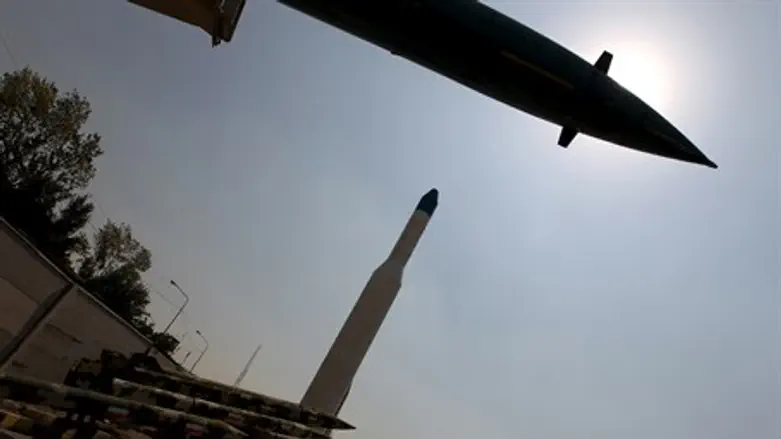
Defying calls by the US and United Nations to halt the development of ballistic missile systems, Iran's outgoing parliament approved a motion Sunday to increase the capabilities of the country's ballistic missiles, a military program that has been ruled dangerous by the United Nations.
Tehran considers the missile program an essential deterrent, citing the unprovoked attacks on its cities by former Iraqi dictator Saddam Hussein in the nations' 1980-1988 war.
However the United States and other Western countries has said the Islamic republic's missiles threaten the Middle East, particularly Israel. Tehran's clerical rulers do not recognize the Jewish state.
The motion was passed by the lame duck conservative-dominated parliament one day after election results showed that reformists had beaten them in polls.
Lawmakers said measures must be taken "to develop and increase ballistic missile capability" and "short, medium and long range anti-aircraft capabilities."
The new parliament will be sworn in later this month.
The ballistic missile program was not covered by the controversial nuclear deal last summer between Iran and the United States and other leading powers under which economic sanctions were lifted in January.
Under that agreement, Tehran agreed to place curbs on its atomic program which the West accused Iran of using to develop a bomb.
However, the testing of ballistic missiles just months after the nuclear agreement was struck last year has shown the limited reach of the accord as well as highlighting that Iran and the United States remain foes.
The United States hit Iran with fresh sanctions on the missile program on January 17, just 24 hours after nuclear-related sanctions had been lifted under the deal with world powers.
Ballistic missile tests are considered a means for Iran's military to demonstrate that the nuclear agreement will have no impact on its domestic defense plans.
But a UN panel said in December that tests conducted two months earlier breached previous resolutions aimed at stopping Tehran from developing missiles capable of carrying a nuclear warhead.
Iran, citing fatwas by the Islamic republic's clerical rulers against pursuing atomic weapons, argues that its missiles would never be designed to carry the bomb.
AFP contributed to this report